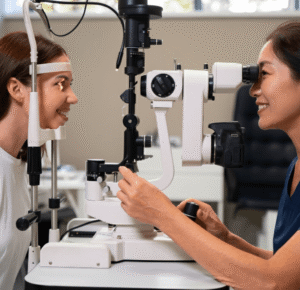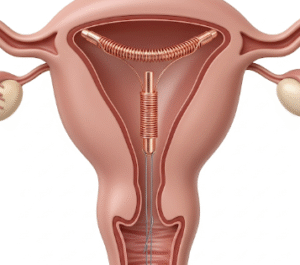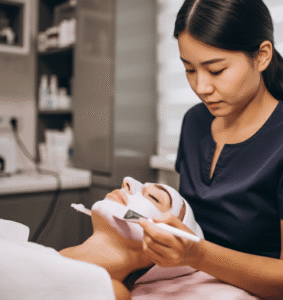Understanding Korea’s Dual Healthcare System
South Korea’s healthcare system is one of the most efficient and advanced in the world. What makes it exceptional is the blend of public and private services, both designed to provide quality care while maintaining affordability and access for everyone.
For foreigners, expats, or medical tourists, understanding the difference between public and private healthcare helps in choosing where to go and how to plan treatment costs. Both systems are reliable, but each offers unique advantages depending on your needs.
➤ Public Healthcare: Accessible, Reliable, and Affordable
Public healthcare in Korea is managed by the National Health Insurance Service (NHIS), a government-run program that ensures universal coverage.
➤ Everyone living or working in Korea for more than six months is required to join NHIS.
➤ Monthly contributions are based on income or housing value.
➤ The system covers 50–80% of most medical expenses, from checkups to surgeries.
Advantages of public healthcare:
➤ Affordable treatment: Doctor visits and hospital stays are much cheaper than in most countries.
➤ Nationwide access: You can visit almost any hospital or clinic, big or small.
➤ Preventive programs: Free annual checkups and screenings are included.
➤ Regulated pricing: Medical fees are standardized by the government, so costs remain fair everywhere.
Example: A simple clinic visit may cost only ₩15,000–₩30,000 KRW ($10–$25 USD), and advanced tests like MRIs are partially covered, reducing large expenses.
Lifestyle insight: Public healthcare ensures everyone, including foreigners, receives high-quality care without financial stress — a major reason Korea ranks among the world’s top healthcare systems.
➤ Private Healthcare: Fast, Personalized, and High-Tech
Private healthcare in Korea caters to those who want more specialized, personalized, or luxury-level medical care. These facilities often charge higher fees but offer faster services and more comfort.
Key features of private care:
➤ Immediate access to specialists with shorter waiting times.
➤ Premium facilities with private rooms, spa-like recovery suites, and multilingual staff.
➤ Specialized departments for surgery, fertility, plastic surgery, and cancer treatment.
➤ Advanced medical equipment and digital systems for precision care.
Advantages of private healthcare:
➤ Speed and convenience: Appointments are easy to schedule, and waiting times are minimal.
➤ Top specialists: Many leading doctors practice in private hospitals.
➤ Luxury experience: Modern, hotel-like facilities with personalized attention.
➤ Multilingual support: Ideal for foreign patients and medical tourists.
Lifestyle insight: Private hospitals such as Severance, Asan, and Samsung Medical Center are internationally renowned for advanced technology, elegant design, and outstanding patient service.
➤ Comparing Costs
The cost difference between public and private care can vary greatly depending on the treatment type, but both are still reasonable compared to Western standards.
Public healthcare (with NHIS):
➤ Doctor visit: ₩15,000–₩30,000 KRW ($10–$25 USD)
➤ Specialist visit: ₩50,000–₩80,000 KRW ($35–$60 USD)
➤ Hospital stay: ₩100,000–₩200,000 KRW ($75–$150 USD per night)
➤ Surgery (appendix, etc.): ₩1–2 million KRW ($750–$1,500 USD)
Private healthcare (without NHIS discount):
➤ Clinic visit: ₩80,000–₩150,000 KRW ($60–$110 USD)
➤ Specialist consultation: ₩150,000–₩300,000 KRW ($110–$220 USD)
➤ Premium hospital stay: ₩400,000–₩800,000 KRW ($300–$600 USD per night)
➤ Cosmetic or advanced surgery: ₩3–10 million KRW ($2,200–$7,500 USD)
Lifestyle insight: Even at private hospitals, Korean healthcare costs remain lower than in the U.S. or Europe — offering world-class service at affordable rates.
➤ Quality of Care in Both Systems
Both public and private healthcare in Korea maintain exceptionally high medical standards. Doctors receive extensive training, and hospitals are equipped with state-of-the-art technology.
Public hospitals:
➤ Provide standardized care at reasonable prices.
➤ Follow strict medical and ethical guidelines.
➤ Focus on preventive and long-term health management.
Private hospitals:
➤ Offer specialized treatments and advanced surgeries.
➤ Focus on patient comfort, convenience, and innovation.
➤ Provide access to cutting-edge therapies not covered by NHIS.
Lifestyle insight: Whether public or private, Korean medical care emphasizes accuracy, safety, and patient respect — values deeply rooted in the country’s healthcare culture.
➤ Accessibility and Waiting Times
Public hospitals:
➤ Longer wait times due to high patient numbers, especially for specialists.
➤ Morning or weekday appointments are best for quicker visits.
Private hospitals:
➤ Faster appointments and shorter waiting times.
➤ Concierge-style scheduling and more flexible hours.
Lifestyle tip: For minor issues, public clinics are perfect. For urgent or complex treatments, private hospitals provide faster access to advanced care.
➤ Language and Foreign Patient Support
Language assistance is increasingly available across both public and private systems.
➤ Large hospitals have international departments with translators and English-speaking staff.
➤ Smaller clinics may use translation apps or phone interpretation services.
➤ Private facilities often employ multilingual coordinators to assist with travel, appointments, and billing.
Lifestyle insight: For visitors or short-term patients, private hospitals offer smoother communication and tailored foreigner services.
➤ Insurance and Payment Options
Public healthcare (NHIS):
➤ Covers most essential treatments, emergency care, and prescriptions.
➤ Foreign residents can join after six months in Korea.
➤ Some elective and cosmetic procedures are not covered.
Private healthcare:
➤ Accepts direct payment or international insurance such as Allianz, Cigna, or Bupa.
➤ Patients can request itemized bills for reimbursement.
➤ Many facilities offer comprehensive medical tourism packages including translation, lodging, and transportation.
Lifestyle tip: Combining NHIS with private insurance gives you broad coverage — affordable for daily care and flexible for specialized treatments.
➤ Integrating Traditional Korean Medicine
A distinctive feature of healthcare in Korea is the integration of Traditional Korean Medicine (TKM) within both public and private systems.
➤ Public hospitals may include acupuncture and herbal treatments under NHIS.
➤ Private wellness centers offer luxury Hanbang therapies for stress, detox, and rejuvenation.
Lifestyle insight: This unique blend of ancient healing and modern science offers holistic care for physical and mental wellness.
➤ Which System Should You Choose?
Public healthcare is best if you:
➤ Live in Korea long-term and are enrolled in NHIS.
➤ Need affordable checkups, treatments, or prescriptions.
➤ Prefer standard care and government-subsidized prices.
Private healthcare is best if you:
➤ Want faster, personalized treatment.
➤ Need specialized surgery or advanced medical technology.
➤ Are visiting short-term with private or travel insurance.
Lifestyle tip: Many foreigners use both systems — public for regular care and private for specialized or urgent needs. It’s the best way to balance quality, cost, and convenience.
Final Thoughts: A Balanced, World-Class System
Korea’s healthcare system offers the best of both worlds — public accessibility and private innovation. Public healthcare guarantees fairness and affordability, while private facilities add speed, comfort, and advanced care options.
For locals and foreigners alike, this balance ensures that high-quality treatment is never out of reach. Whether you choose a public clinic for preventive care or a private hospital for surgery, you’ll find the same values at the heart of Korean medicine: efficiency, precision, and genuine care.
In South Korea, healthcare isn’t just a service — it’s a promise of wellbeing for everyone.













